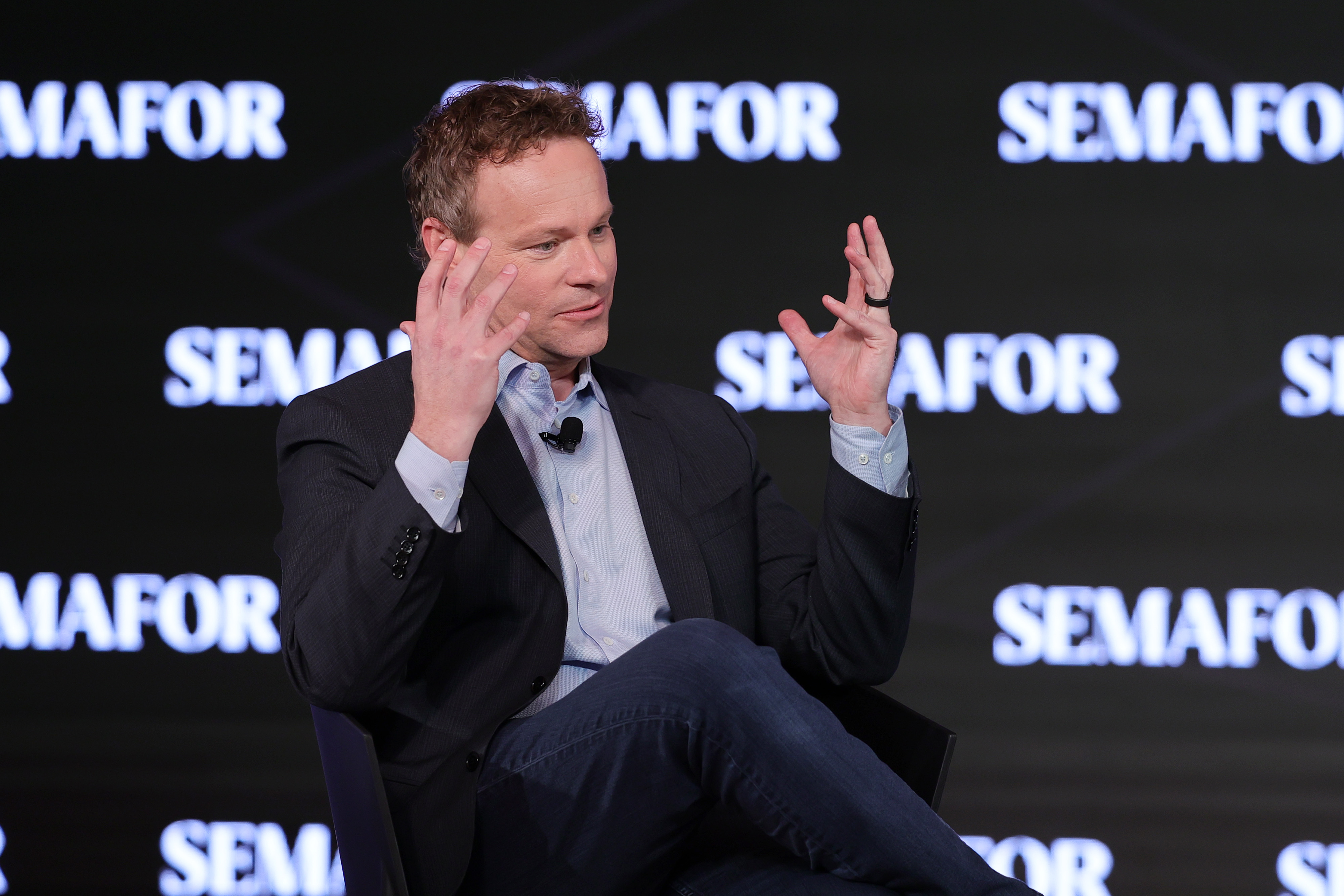
Chris Licht apologized to staff Monday morning after the publication Friday of a lengthy profile in The Atlantic, for which he gave writer Tim Alberta wide-reaching access, painted an embarrassing portrait of the embattled CNN chief.
“CNN is not about me,” Licht told the newsroom during following publication of an Atlantic article titled “Inside the Meltdown at CNN.”
“I should not be in the news unless it’s taking arrows for you,” he also said, adding that he’d “fight like hell” to earn back the newsroom's trust.
Now more than a year into his tenure at CNN, the former Morning Joe, CBS This Morning and The Late Show With Stephen Colbert executive producer already seemed on thin ice on Thursday, when parent company Warner Bros. Discovery announced the hiring of David Leavy, longtime aide to WBD CEO David Zaslav, as CNN's new chief operating officer.
With CNN's ratings even falling behind lightly regarded right-wing cable channel Newsmax these days, Leavy’s hiring was spun as an attempt to take the business piece off Licht's plate and allow the CNN chairman and CEO to concentrate on what he ostensibly knows best, programming.
But now, all bets appear off. Writing in New York Magazine Monday, Brian Stelter — fired himself by Licht from CNN last August — wrote that Zaslav knew The Atlantic's 15,000-word “defenestration of Licht” was about to hit newsstands and web browsers, and he hired Leavy to ”survey and repair the damage.”
Stelter describes Leavy as besieged by high-level CNN personalities, seeking counsel and declaring their lost confidence in Licht.
“I feel like a quarterback without a coach,” Stelter wrote, quoting one unnamed CNN anchor.
Amalgamating conversations with what he described as three separate CNN newsroom employees, Stelter also penned these quotes: “He’s over.” “He’s done.” “There’s no coming back from that profile.”
Beyond belying Licht’s judgment (and that of CNN communications chief Matt Dornic) for allowing Alberta to tag along with the CEO for months as he worked out with his personal trainer and performed various other daily tasks, The Atlantic piece paints a damning portrait of an executive who talks a good game, but who has fumbled or lined up offsides again and again.
“Licht’s theory of CNN — what had gone wrong, how to fix it and why doing so could lift the entire industry — made a lot of sense,” Alberta wrote. “The execution of that theory? Another story. Every move he made, big programming decisions and small tactical maneuvers alike, seemed to backfire.”







